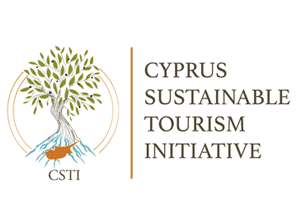The Russian invasion of Ukraine has impacted many countries, especially Cyprus which has lost 22 percent of its tourist arrivals that were from Ukrainian and Russian markets.
However, the Cypriot government is committed to establishing a more sustainable tourism infrastructure in a bid to attract tourists from other countries.
While the number of tourist arrivals from Russia and Ukraine has dropped to zero and losses are estimated to have reached €655 million, as Cyprus Deputy Tourism Minister, Saavas Perdios says, Cyprus is looking into opportunities to expand tourism to other regions rather than the beach, such as “Colorful Villages”, SchengenVisaInfo.com reports.
This is a label for those villages that have high sustainability levels, natural beauty and other resources, and some of the most famous villages are Laneia, Vouni and Arsos, all of which have witnessed an increase in the number of arrivals in the recent year.
However, this strategy of shifting tourism towards villages can be risque, as Cyprus has a reputation for beautiful beaches and hot weather.
The country is especially visited by tourists from the United Kingdom, which is the largest market source, followed by Poland, Hungary, Austria, Italy and Switzerland in 2022 the industry almost fully recovered from the
Tags as it reached 90 percent of its 2019 levels, receiving a total of 3.2 million visitors.
This is about 700,000 fewer tourists than in 2019 when 3.9 million tourists visited the country, which was a first-time record.
Cyprus also witnessed a change in travel patterns as the average stay increased to ten days, one day more than visitors used to spend in 2019.
In general, Cyprus had a successful tourism year in 2022, as the arrivals were 60 per cent higher than in 2021, with the number of arrivals reaching 149,857 – 0.6 percent more than in the whole of 2021 when 148,973 people visited the country.
The main countries of origin for tourists in 2022 were the United Kingdom with 38,265 tourists, representing 25.5 per cent of all arrivals, followed by Israel (17,380 tourist arrivals), Greece (15,190), Germany (15,065) and Poland (13,759).
Moreover, tourism in Cyprus might experience another boost rather than tourists visiting for the country’s natural beauty as Paphos, a Cypriot city has been awarded as the EU Smart Tourism Capital for 2023.
The two European Capitals of Smart Tourism will receive promotional support, as well as a purpose-built sculpture for their city centres, which will be displayed prominently for the duration of their year as a European Capital of Smart Tourism, a statement by EU Destination of Excellence (EDEN) reads.
Altogether with the Slovenian EU capital of Kranj, these destinations will gain support throughout the year in order to develop new sustainable tourism practices.
Tags: COVID-19 pandemic, Cypriot government, sustainable tourism, Cyprus Tourism
